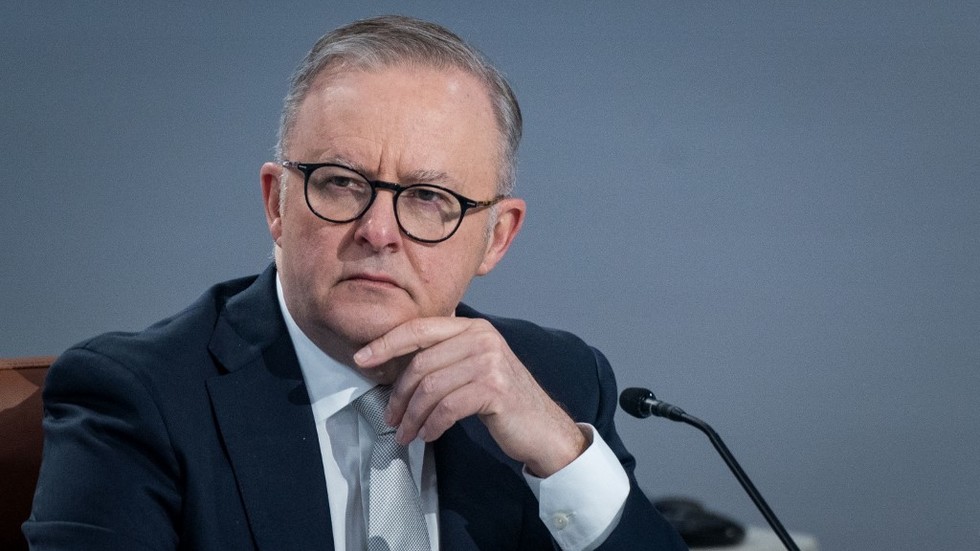
The thalidomide scandal was “one of the darkest chapters” in the country’s history, Prime Minister Anthony Albanese has said

Anthony Albanese takes part in an Asia-Pacific Economic Cooperation (APEC) summit in San Francisco, California, November 17, 2023 © AFP / Kent Nishimura
Australian Prime Minister Anthony Albanese has offered a national apology to victims to thalidomide, the morning sickness drug that caused birth defects in around 100,000 babies worldwide. The apology marks the first time that the Australian government has acknowledged a role in the scandal.
“To the survivors – we apologize for the pain thalidomide has inflicted on each and every one of you each and every day. We are sorry. We are more sorry than we can say,” Albanese addressed a group of survivors in parliament on Wednesday.
“This apology takes in one of the darkest chapters in Australia’s medical history,” he stated.
Developed by German drugmaker Grunenthal, thalidomide was marketed between 1957 and 1961 as a cure for morning sickness during pregnancy and as a non-addictive sleeping tablet. Shortly after it was brought to market, thalidomide was found to cause birth defects including shortened or missing limbs, while other pregnancies were terminated prematurely by the drug, and some children exposed to it in the womb died before reaching puberty.

Read more
Estimates from the Thalidomide Trust suggest around 100,000 thalidomide babies were born globally. It is unclear how many were affected in Australia, but a 2019 report by the senate in Canberra found that 20% of the country’s cases could have been avoided if the government had acted sooner to take the drug out of circulation. The government never admitted liability, but offered survivors one-time payments of up to AU$500,000 ($332,000) and annual compensation of up to AU$60,000 in 2019.
Similar redress schemes were implemented in Canada in 1991 and the UK in 2010. Grunethal acknowledges its role in the scandal, but has never admitted legal liability. Several Grunethal officials were charged with negligent homicide in the late 1960s, but the firm settled out of court and agreed to contribute to a charitable foundation for victims.




